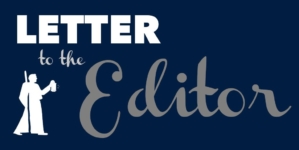Incorrect Deadline? Combination and not Coalition, possible as per law
Dear Editor,
Reference is made to your editorial “Coalition Day is here” (KN Jan 17). That deadline may be arbitrary and a violation of the law as regards the Peoples Representation Act. Has gecom misinterpreted law?
Just for clarification, the term coalition means coming together of parties. But the law does not allow them to formally come together as one electoral group (force) after nomination day – although Gecom can give consideration through discretionary powers for extenuating circumstances.
The law allows the parties to combine their votes (form pacts) post nomination and not to formally coalesce. Section 22 of the Peoples Representation Act speaks to combining lists. Inter alia, the Act states that notification has to be made to Gecom (CEO and Chair) not later than 25 days before the elections. The head and deputy head of the list of a party must so inform Gecom in writing its intention of combining votes and with which parties. A party cannot be included in more than one combination or it would be excluded from all combinations. Once notified of parties combining votes, Gecom must so advise the electorate not later than 23 days before the election.
Understandably, the minor parties were unwilling to form pre-nomination day alliances because of the fear of having to compromise party identity, giving up the presidency and head of lists, and working out seat allotments. They were not sure of how many seats they would win and thought highly of themselves and as such were unwilling to enter into alliances as APNU and AFC did. But the election law allows the parties to combine votes without giving up their identity or projected seat allotment or any other advantages they currently enjoy. In fact, in combining votes, they increase their chance of garnering seats. Each minor party, on its own, as opinion polls suggest, has limited chance of gaining representation in parliament. However, if they were to form combinations, it would significantly increase the likelihood of winning seats. Combination is to their advantage. As an illustration, on its own, each minor party may not meet the minimum threshold (of say 5000 votes or about 1.5%) for a seat. Thus, none minor party may get a seat. But together, the seven minor parties could poll around 19,000 votes (6%) entitling them to four seats and balancing control of parliament.
The way combinations work is the votes of each separate party would be added together and seats would be allotted to that combination based on the total amount of votes obtained. A party meeting the minimum threshold (of say 5000 votes per seat as an illustration) or comes closest would be allotted its seat (s). The party with the next highest amount would be allotted its seat, and so on. The remainder of the votes (highest fraction) would help another party to become eligible for a seat. The parties in the combination would have to make an agreement on seat determination. They can also work out revolving representation as WPA did in 1992 between Clive Thomas and Rupert Roopnarine.
From my polling, the presidency will go to either one of the two major parties — the PNC-led coalition or the PPP de facto led by Bharrat Jagdeo. The critical issue is control of parliament and whether the seven minor parties can deny either major party that wins the Presidency (obtains the most votes) a majority; the president forms the government with or without a majority. The general feeling is if the minor parties can win seats in parliament, they can deny the victor a majority. In so doing, the minor parties can call the shots on governance – helping to provide responsible, non-racist, and corrupt free governance. They will hold the balance in parliament and influence legislation, budgets, expenditure, policymaking and more importantly how the oil revenues would be spent. It is, therefore, in the interests of the minor parties to win seats with combination their best option. They can also combine with the larger parties and seek to influence them. The major parties also benefit from combining.
Gecom is on record as saying that the deadline for combining of lists is January 17. That would suggest a violation of the above Act. The 25th day before election is around Feb 5 and not January 17th. This act is not well publicized in the media; few know about this law. Gecom should not set arbitrary deadlines on combining lists. It must provide ample opportunities to the parties to submit their lists. It is understandable that Gecom would need sufficient time before polling day to prepare ballots. But Gecom can extend this arbitrary deadline by publishing a notice in the media giving an extra week or thereabout for parties to combine lists.
Yours truly,
Dr. Vishnu Bisram
(Political Scientist)






















